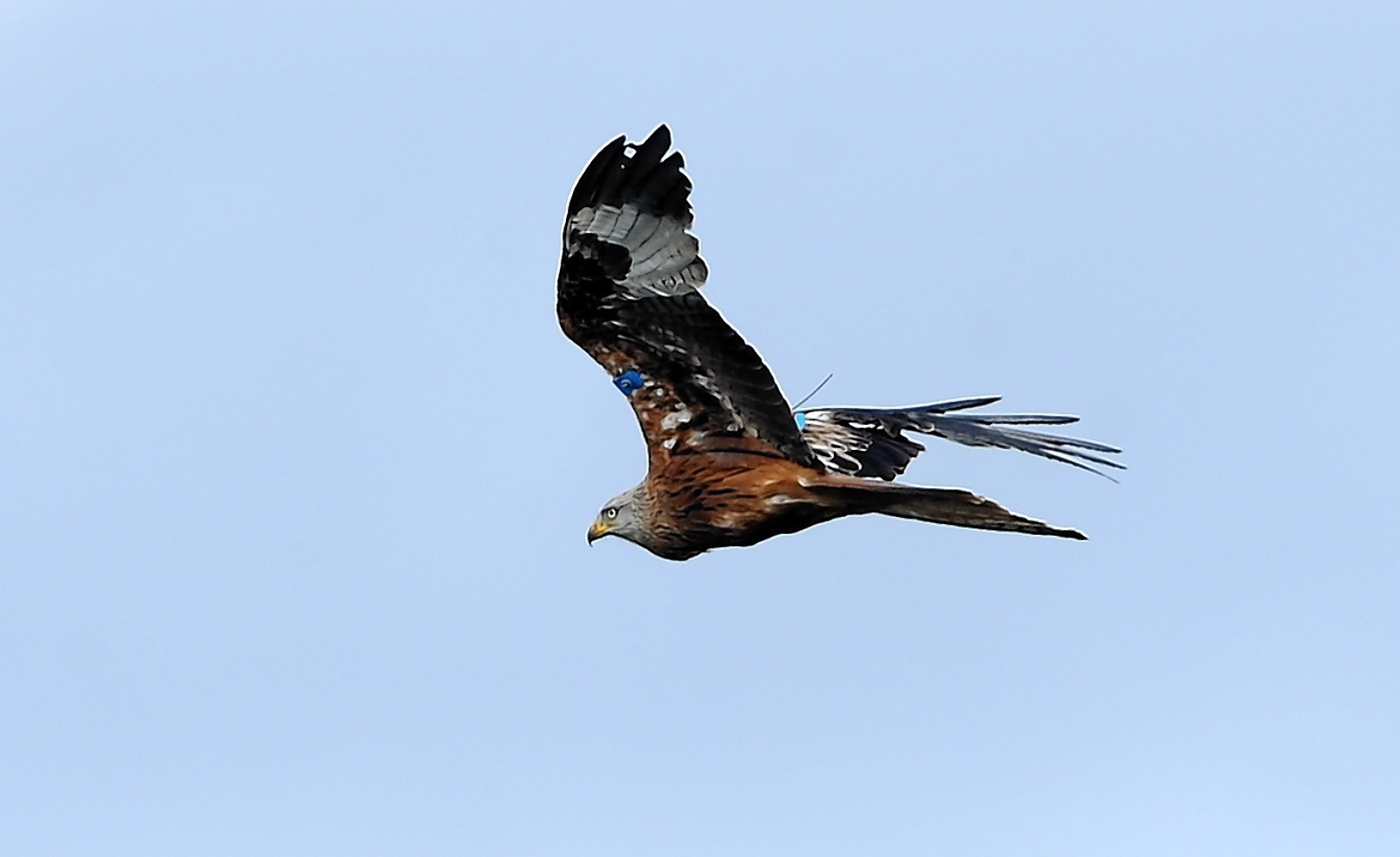Two red kites found dead in the Highlands last summer were killed illegally, the RSPB has revealed.
The deaths were withheld from the public until police had concluded their investigation.
One of the birds found last June near Beauly was found to have been shot, following a post-mortem examination.
And a second red kite, found three miles south-east of Cawdor in September, was illegally poisoned with a banned pesticide.
The bird was part of a successful breeding pair bred at Cawdor Castle in 2014, marking the first record of red kites being bred in Nairn-shire for more than a century.
Both of the birds were fitted with satellite tags by RSPB Scotland as part of a wider project to track the movements of the protected species.
The charity said that it is unlikely that either carcase would have been found if not for their tags.
Duncan Orr-Ewing, RSPB Scotland’s head of species and land management, said: “Since red kite reintroductions began in Scotland in 1989, over 100 birds have been confirmed as illegally killed, with a significant majority of the victims found poisoned.
“The real figure will be much higher as the finding of these satellite tagged birds demonstrates.”
The deaths occurred just months after the high profile investigation into the killing of at least 12 red kites and four buzzards near Conon Bridge in March 2014, which remains unsolved by police.
All of the birds were found to have died after eating a banned pesticide.
Bill Kidd MSP, the Scottish Government’s red kite champion said: “I believe that whoever is responsible for these crimes is bringing a lot of decent law-abiding people in the Highland community into undeserved disrepute through their despicable actions.
“The people of the Black Isle are to be strongly commended for their care of and interest in the red kites and other raptors in the area and I’m sure the same would happen in Nairnshire if the birds were allowed to spread there.”
The Scottish Gamekeepers Association chairman Alex Hogg said that they were unaware of the latest two cases, adding that the body “does not condone wildlife crime”.
A police spokesman said that investigating wildlife crime was “challenging” but said that detection rates were increasing.
